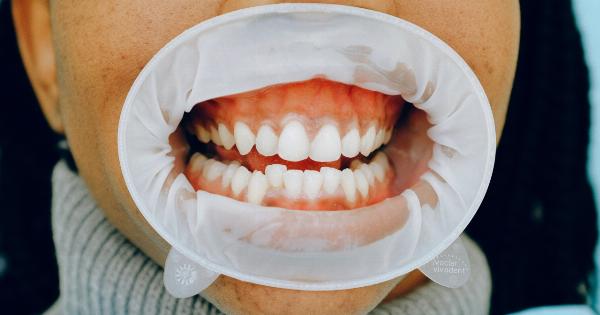Bleeding gums can be an alarming and uncomfortable condition for many people. There are several causes of bleeding gums, and finding the right solution depends on identifying the root cause of the problem.
This article will explore the common causes of bleeding gums and provide solutions based on those causes.
Causes of Bleeding Gums
Poor Oral Hygiene
Poor oral hygiene is the most common cause of bleeding gums. Not brushing or flossing regularly can lead to the buildup of plaque and tartar on teeth and gums. This plaque buildup irritates the gums, leading to inflammation, swelling, and bleeding.
The solution for bleeding gums caused by poor oral hygiene is to establish a regular brushing and flossing routine. Brush twice a day with fluoride toothpaste and floss at least once a day to remove plaque and bacteria that can contribute to gum disease.
Gingivitis
Gingivitis is a mild form of gum disease caused by plaque buildup on teeth. It causes inflammation and bleeding of the gums. Gingivitis is reversible with proper oral hygiene, including brushing, flossing, and regular dental cleanings.
If left untreated, gingivitis can progress to more severe forms of gum disease, such as periodontitis, which can cause tooth loss and other health problems.
Pregnancy
Pregnancy can cause changes in hormone levels that can lead to bleeding gums. This condition is known as pregnancy gingivitis.
The increase in hormones can cause the gums to become more sensitive to plaque and bacteria, leading to inflammation and bleeding. Practicing good oral hygiene during pregnancy can help prevent pregnancy gingivitis. Women who experience bleeding gums during pregnancy should consult with their dentist for advice on how to manage their oral health during this time.
Mouth Sores
Mouth sores, such as canker sores, can cause bleeding gums. The sores can irritate the gums and cause them to bleed. In addition, certain dental appliances, such as dentures or braces, can also cause bleeding gums if they do not fit properly.
The solution is to see a dentist or orthodontist to adjust the dental appliance or prescribe medication to treat the mouth sores.
Nutritional Deficiencies
Nutritional deficiencies, such as a lack of vitamin C, can weaken the gums and cause them to bleed more easily. Vitamin C is essential for gum health and the development of connective tissue.
A lack of vitamin C can cause scurvy, which can lead to bleeding gums, among other symptoms. Eating a well-balanced diet that includes fruits and vegetables can help prevent nutritional deficiencies that can cause bleeding gums.
Serious Health Conditions
In some cases, bleeding gums can be a sign of a more serious health condition, such as leukemia or bleeding disorders. If bleeding gums occur without an apparent cause, it is important to see a doctor to rule out any underlying health conditions.
Preventing Bleeding Gums
Preventing bleeding gums requires establishing good oral hygiene habits. This includes brushing twice a day with fluoride toothpaste, flossing at least once a day, and scheduling regular dental cleanings.
Eating a healthy diet that includes fruits and vegetables can also help prevent nutritional deficiencies that can cause bleeding gums.
If bleeding gums persist, it is important to see a dentist or doctor for advice. They can diagnose the cause of the bleeding and recommend the appropriate treatment.
In some cases, medication or surgery may be necessary to treat gum disease or other underlying health conditions that can cause bleeding gums.
Conclusion
Bleeding gums can be an alarming and uncomfortable condition. The causes of bleeding gums can range from poor oral hygiene to serious health conditions.
Establishing good oral hygiene habits, eating a healthy diet, and seeking medical advice if bleeding gums persist can help prevent and treat this condition.





























